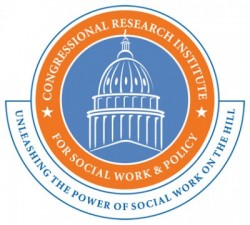 During his presidential campaign, Donald Trump fancied himself to be the “law and order” candidate, promising to be tough on crime should he win the White House.
During his presidential campaign, Donald Trump fancied himself to be the “law and order” candidate, promising to be tough on crime should he win the White House.
United States Attorney Jeff Sessions sought to make good on that promise recently when he sent a directive to the nation’s state attorneys general that they were to seek the most severe penalties possible when charging defendants, including mandatory minimum sentences that helped to swell the nation’s prison population in the 1980s and 1990s. While crime rates have dropped dramatically over the past several decades, incarceration rates remain high.

Dr. Carrie Pettus-Davis
Many of you know the statistics—the United States has less than five percent of the world’s population and almost 25 percent of the world’s prison population. At a rate of 716 per 100,000 people, the United States has the world’s highest incarceration rate according to the World Prison Population List. For this and other reasons, reducing incarceration was selected as one of the 12 Grand Challenges for Social Work. The Smart Decarceration network, led by Carrie Pettus-Davis and Matt Epperson at the University of Chicago School of Social Service Administration, focuses on developing effective and socially just alternatives to replace incarceration, primarily at the state level which houses the bulk of the nation’s 2.2 million people behind bars.
In 2015, there were 1,526,792 prisoners in state and federal prisons—facilities for offenders sentenced to a year or more behind bars. Federal prisoners accounted for about 13 percent of the total. Most sentenced prisoners are in state systems. Another 728,200 inmates were incarcerated in local jails. So, the Attorney General’s decree directly impacts a small number of offenders but could have a broader effect if state level officials decide to follow his lead. It was the Violent Crime Control Act of 1994 that promoted Truth in Sentencing laws using Byrne grants to incentivize states to sentence people more severely and confine them longer. Federal “three strikes and you’re out” policies were a part of this get tough on crime effort, as was the super predator fears that prompted states to start sentencing juveniles as adults.
This new emphasis on punishment is a stark reversal of recent bipartisan efforts at criminal justice reform in Congress and at the state level. The Sentencing Reform and Corrections Act of 2015 (S.2123) introduced by Republican Senator Charles Grassley, chair of the Senate Judiciary Committee, had 36 cosponsors—20 Democrats and 16 Republicans. A companion bill in the House of Representatives—H.R.3713: Sentencing Reform Act of 2015 introduced Rep. Bob Goodlatte (R-VA-6), had 79 cosponsors, including 19 Republicans. Though not identical, the bills would adjust mandatory minimum laws to give judges more discretion, particularly for nonviolent, low-level drug offenses. These bills need to be reintroduced in the new Congress.
Congress should recognize that their constituents support smart criminal justice reform. Most recently, Louisiana—the state that leads the world in incarceration rates—joined 30 other states in implementing sweeping criminal justice reforms. Oklahoma, Georgia, Texas, New York, Connecticut, and California are among states that have passed legislation aimed to shrink prison populations by reducing sentencing severity and length, and re-investing criminal justice funds into treatment and prevention of substance use and other mental health disorders. Progressive prosecutors campaigning on decarceration-focused agendas are being elected in cities and counties around the country (e.g., St. Louis, Philadelphia, Milwaukee). Politicians in these jurisdictions recognize that harsh sentencing and tough on crime rhetoric is not supported by research, logic, or a growing number of American voters.
Sessions prediction of a surge in crime will be realized if his arcane policy positions are adopted. Decades of research shows that incarceration is crime producing more so than crime reducing. Smart decarceration in the United States will be achieved when three simultaneous goals are accomplished: 1) the incarcerated population in jails and prisons is substantially reduced, 2) race, economic, and behavioral disparities that pervade the criminal justice system are redressed, and 3) both public health and public well-being of American residents are maximized. Social work can promote smart decarceration by questioning the utility and function of incarceration and actively welcome current and formerly-incarcerated individuals as leaders in decarceration efforts. The second national conference on promoting smart decarceration entitled “Tools and Tactics: Promising Solutions to Advancing the Era of Smart Decarceration,” will be held in Chicago, Illinois November 2-4, 2017. Perhaps the organizers should invite Mr. Sessions to attend?
Dr. Carrie Pettus-Davis is an assistant professor at the George Warren Brown School of Social Work at Washington University in Saint Louis and the director of the Institute for Advancing Justice Research and Innovation.
Written By Charles E. Lewis Jr., Ph.D
Smart Decarceration Trumps Lock Them Up Policies was originally published @ Charles Lewis – Congressional Research Institute for Social Work and Policy and has been syndicated with permission.
Our authors want to hear from you! Click to leave a comment
Related Posts





